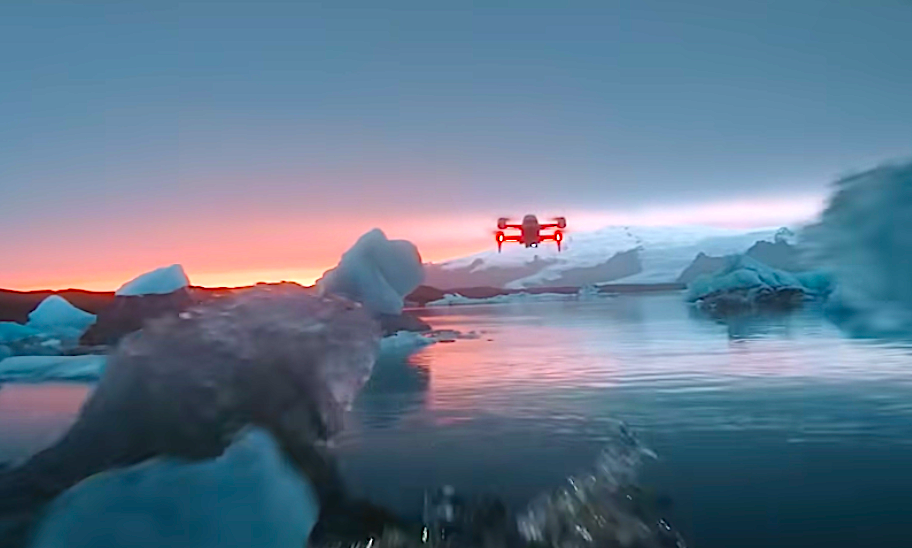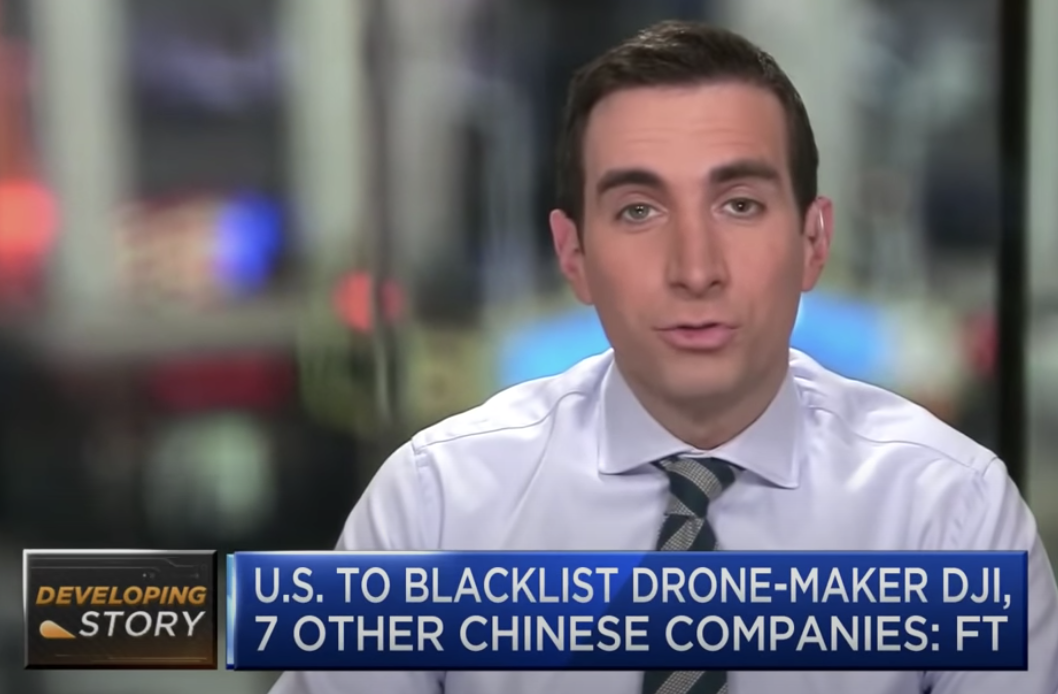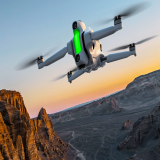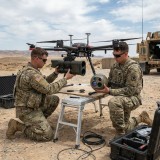
Those in-the-know are aware that Shenzhen, China-based DJI Technology is the planet's #1 manufacturer of unmanned aerial vehicles. In addition, the company currently controls more than half of the drone market in the United States.
But are DJI drones workmates and playthings, or Chinese super spies that Americans have willingly invited into their dataspheres?
DJI's critics certainly feel the company could be capturing personal data (facial recognition, heart rate, etc.) and critical infrastructure information (bridges, dams, power plants, etc.) and sending it along to Chinese intelligence agencies.
Even U.S. presidents are wary.
President Donald Trump prohibited DJI from sourcing American parts in 2020, and just this Thursday, President Joe Biden blocked American investment in the company. Furthermore, politicians from both parties are considering legislation banning federal purchases of DJI drones.

While China is infamous for controlling and securing data across its population of 1.4 billion, drones produced by the country give it possibly unfetered access to information on millions of U.S. citizens — as well as people residing in other nations.
"Each new piece of information, by itself, is relatively unimportant," Oona Hathaway, a professor at Yale Law School who served in the Pentagon under President Barack Obama, wrote in Foreign Affairs. "But combined, the pieces can give foreign adversaries unprecedented insight into the personal lives of most Americans."
Commenting more directly in a co-authored op-ed in the New York Times, Matt Pottinger—a former deputy national security adviser in the Trump Administration—claimed Chinese President Xi Jinping is far ahead of the West in realizing the importance of data in gaining economic and military advantages.
"If Washington and its allies don't organize a strong response, Mr. Xi will succeed in commanding the heights of future global power," added Pottinger.
As everything from smart watches to cars transmit data, the "data war" between the United States and China could potentially reshape the world economy. Harnessing information is key to dominating technologies such as artificial intelligence that will drive the modern economy, and such activites are also crucial for exploiting weaknesses in strategic foes.
"Data security will be a defining issue for the next decade," states Paul Triolo, a former U.S. government official specializing in global-technology policy at risk consultancy Eurasia Group. "The democratic and authoritarian digital worlds will be built on largely different hardware, with different standards, and limited points of connection. This will drive up costs for businesses operating across these two spheres, reduce innovation, and lead to geopolitical tensions, reduced trade, and a much more complex world for companies to operate within. Other countries will be forced to choose sides in this divide, and this will be painful and costly."
Beijing moved more swiftly in the data-security race, passing laws this year aimed at protecting user data and strengthening the government's ability to control information held by private firms.
However, U.S. policy makers haven't been ignoring the situation, either.
In 2019, Trump signed a bill prohibiting the military from purchasing Chinese-made drones and drone components. A year later, the Commerce Department put DJI on its Entity List, which bars U.S. suppliers from selling to it without an exemption. Republicans with presidential ambitions like Senators Tom Cotton and Marco Rubio have co-sponsored the bipartisan American Security Drone Act, which would ban all federal purchases of DJI's drones. The Senate's top Democrat, Majority Leader Chuck Schumer, has pushed similar legislation via a separate bill.
Amid such suspicion and scrutiny, DJI has made moves to combat fears about Chinese surveillance. In 2019, the company produced a Government Edition drone that ensured all data never left the drone itself. Since then, DJI has offered its customers a Local Data Mode that prevents transmission of drone data over the web.
"DJI is committed to protecting drone user data," the firm stated in July 2020. "This is why we design our systems so drone users have control of whether they share any data with us."
Klon Kitchen, a security expert at the American Enterprise Institute in Washington, is skeptical.
"These drones are one update from being non-compliant," he said in an interview. "Information could flow through drone-control apps that suck data out of users' mobile phones."
Few Western governments trust Beijing—especially as China's National Intelligence Law requires organizations to assist in espionage and keep those activities secret.
"Governments should assume Chinese spy agencies will find value in information gathered by DJI drones, said Andrew Shelley, director of Aviation Safety at Management Systems Ltd. "For the average recreational user who might be taking selfies on the beach, it's probably true that DJI is not interested in their data. But collectively, the Chinese government is interested in our data. We don't understand just how much of a threat that is."











